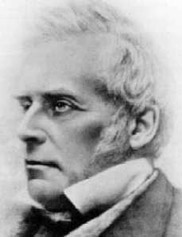A Quote by Joseph Priestley
It is hardly possible not to suspect the truth of this doctrine of atonement, when we consider that the general maxims to which it may be reduced, are nowhere laid down, or asserted, in the Scriptures, but others quite contrary to them.
Related Quotes
As I conceive this doctrine to be a gross misrepresentation of the character and moral government of God, and to affect many other articles in the scheme of Christianity, greatly disfiguring and depraving it; I shall show, ... that it has no countenance whatever in reason, or the Scriptures; and, therefore, that the whole doctrine of atonement, with every modification of it, has been a departure from the primitive and genuine doctrine of Christianity.
There is no doctrine more fundamental to our work than the Atonement of Jesus Christ. At every appropriate opportunity, testify of the Savior and of the power of His Atoning sacrifice. Use scriptures that teach of Him and why He is the perfect pattern for everyone in life.4 You will need to study diligently. Do not become so absorbed with trivial things that you miss learning the doctrine and teachings of the Lord. With a solid, personal doctrinal foundation, you will be a powerful source for sharing vital truths with others who desperately need them.
In all things that you find in the Holy Scriptures, seek out the purpose of the words, that you may enter into the depth of the thoughts of the saints and understand them with greater exactness. Do not approach the reading of the Divine Scriptures without prayer and asking the help of God. Consider prayer to be the key to the true understanding of that which is said in the Holy Scriptures.
It is not the feeling sure of a doctrine (be it what it may) which I call an assumption of infallibility. It is the undertaking to decide that question for others, without allowing them to hear what can be said on the contrary side. And I denounce and reprobate this pretension not the less, if put forth on the side of my most solemn convictions.
If we consider the manner in which those who assume the office of directing the conduct of others execute their undertaking, it will not be very wonderful that their labours, however zealous or affectionate, are frequently useless. For what is the advice that is commonly given? A few general maxims, enforced with vehemence, and inculcated with importunity, but failing for want of particular reference and immediate application.
[It] may be laid down as a general rule that, if the result of a long series of precise observations approximates a simple relation so closely that the remaining difference is undetectable by observation and may be attributed to the errors to which they are liable, then this relation is probably that of nature.
There is a reductive nature to the Internet, and it's not limited to comic book news sites and stuff: it's everybody. There is a reductive nature of it, by which anything that's said very quickly gets reduced down to the next. Reduced, reduced, reduced to the point where rumors with some sense of nuance to them just become fact.
The human understanding, when any preposition has been once laid down... forces everything else to add fresh support and confirmation; and although more cogent and abundant instances may exist to the contrary, yet it either does not observe them or it despises them, or it gets rid of and rejects them by some distinction, with violent and injurious prejudice, rather than sacrifice the authority of its first conclusions.
Toleration, holding that every other man has the same right to his opinion and faith that we have to ours; and liberality, holding that as no human being can with certainty say, in the clash and conflict of hostile faiths and creeds, what is truth, or that he is surely in possession of it, so everyone should feel that it is quite possible that another equally honest and sincere with himself, and yet holding the contrary opinion, may himself be in possession of the truth.
The Devil has seldom done a cleverer thing that hinting to the Church that part of their mission is to provide entertainment for the people, with a view to winning them. Providing amusement for the people is nowhere spoken of in the Scriptures as a function of the Church. The need is biblical doctrine, so understood and felt that is sets men afire.




































